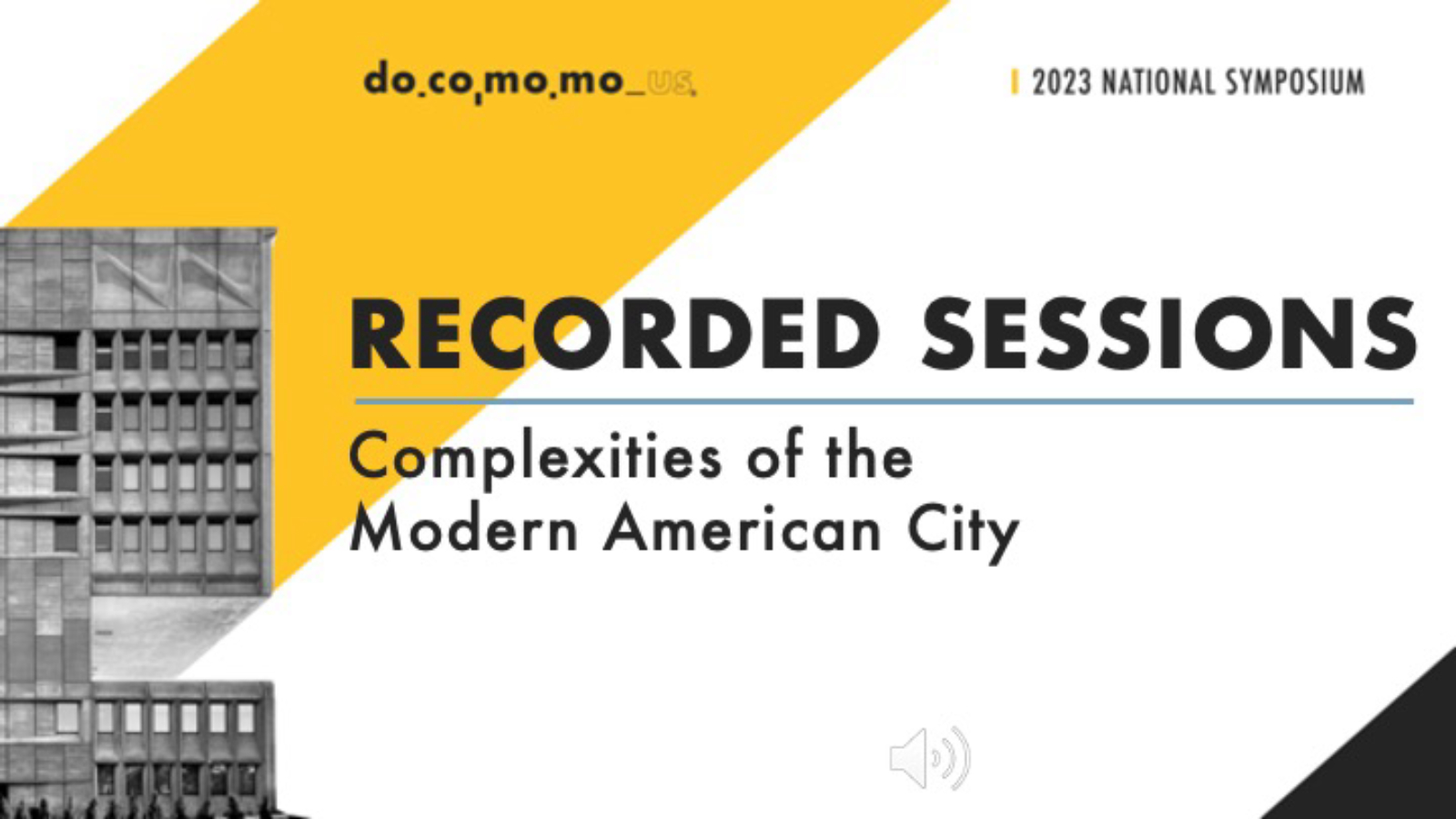The Docomomo US 2023 National Symposium took place in New Haven, CT, where you will find one of the country’s most densely woven collections of mid-century art, design, and architecture. Packed with panels and presentations by noted authorities on architecture and preservation, the Symposium considered the triumphs and complexities surrounding the design and building of the Modern city and the impacts on our collective communities.
A selection of recorded Symposium sessions are now available to view on Vimeo.
Sessions can be purchased individually or as a package.
Individual sessions: $10/each
All Symposium sessions: $100
We are pleased to make Session 3, "Telling the Full Story: African Americans, Activism and Architecture," available to the public to stream for FREE.
Symposium attendees can access the recordings for free (as a perk of attendance) and Docomomo US members receive $25 off the full package. Attendees and members should have received an email with a discount code. If you did not receive an email, please contact us at info@docomomo-us.org.
Recordings will be available to view for one (1) year from the date of purchase.
If you have any questions, or are affiliated with an academic institution and would like to provide access for students, please contact us at info@docomomo-us.org.
Many thanks to our speakers for making their presentations available to the public and promoting knowledge in this capacity.
